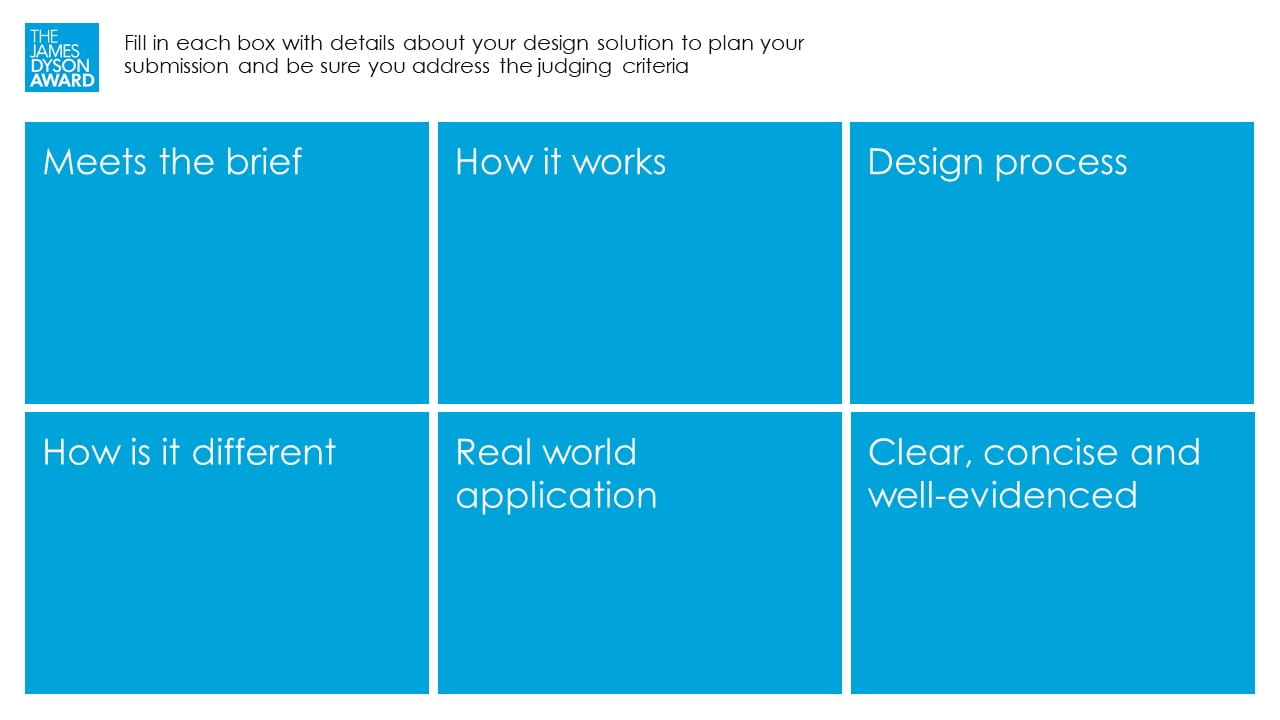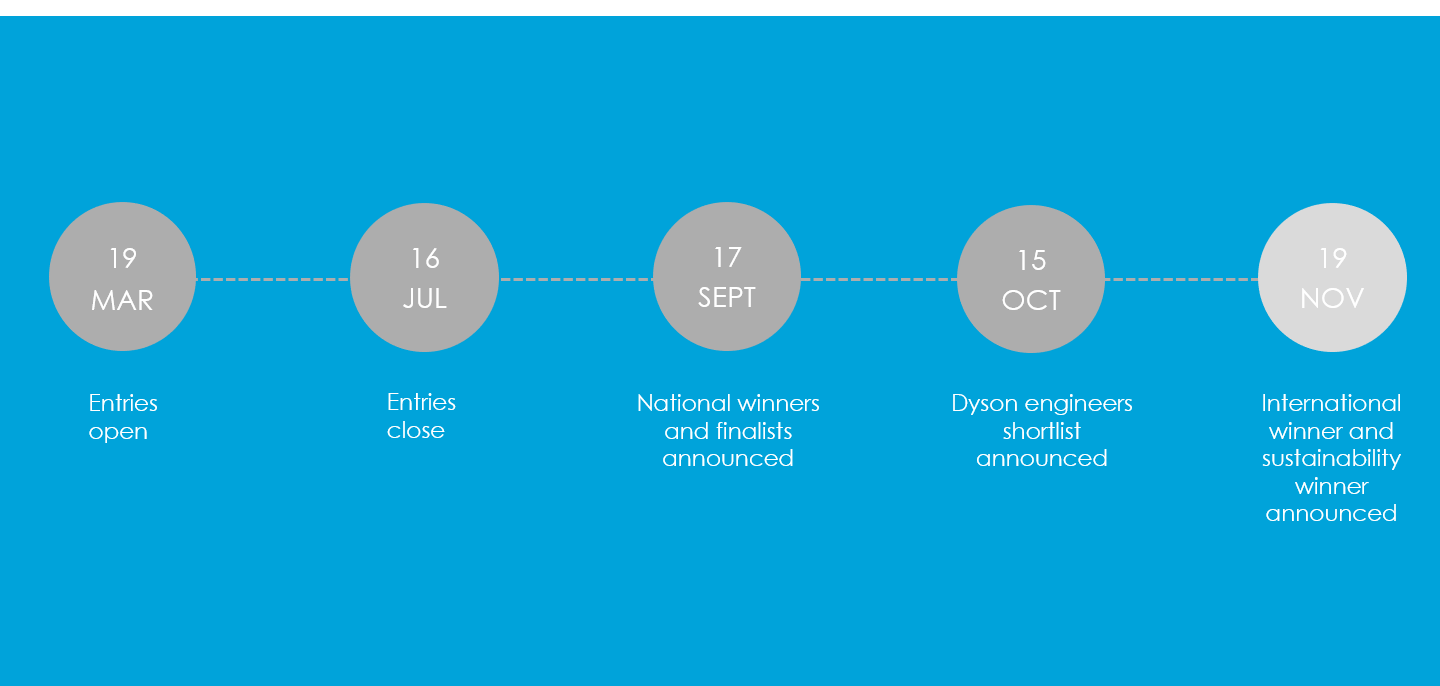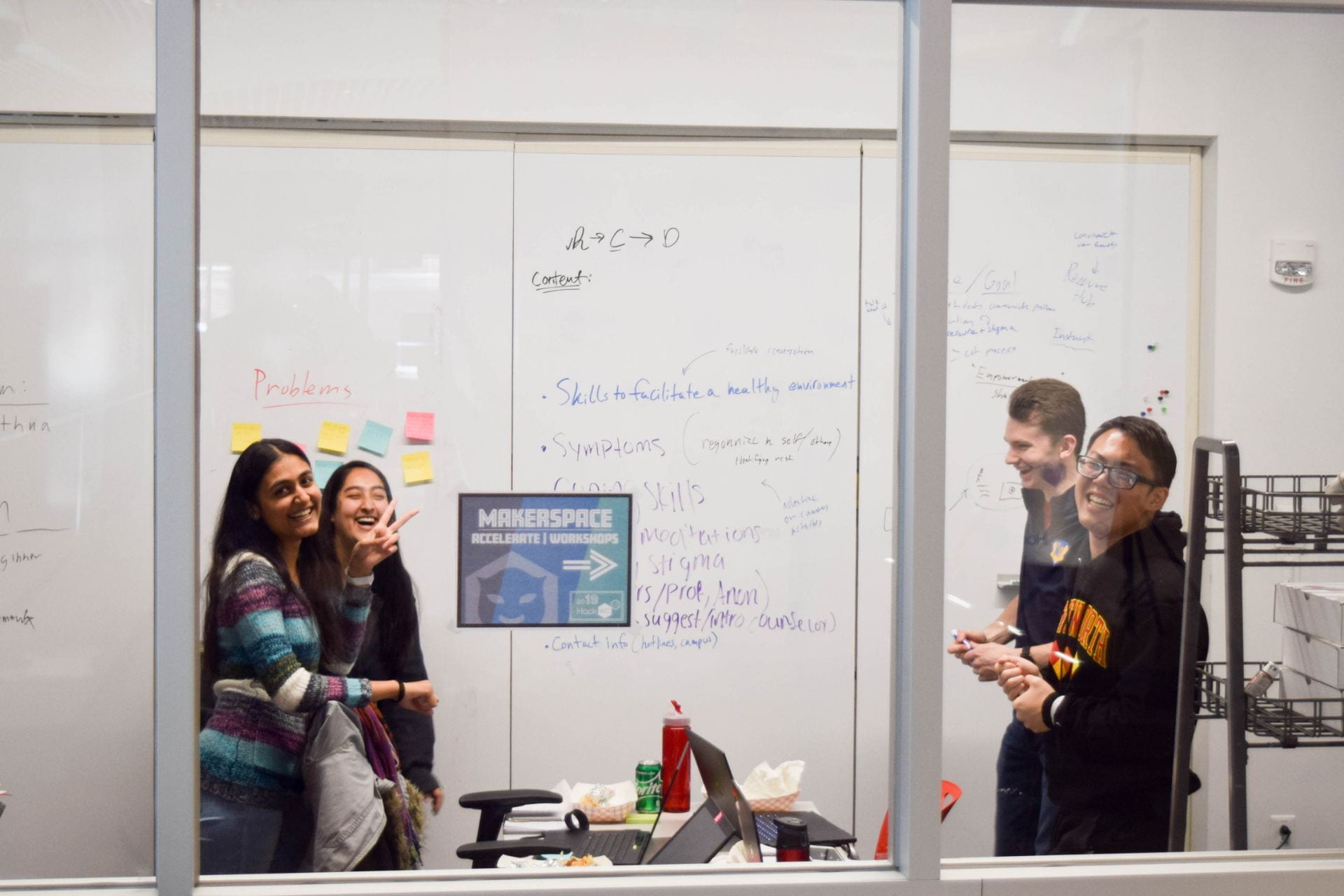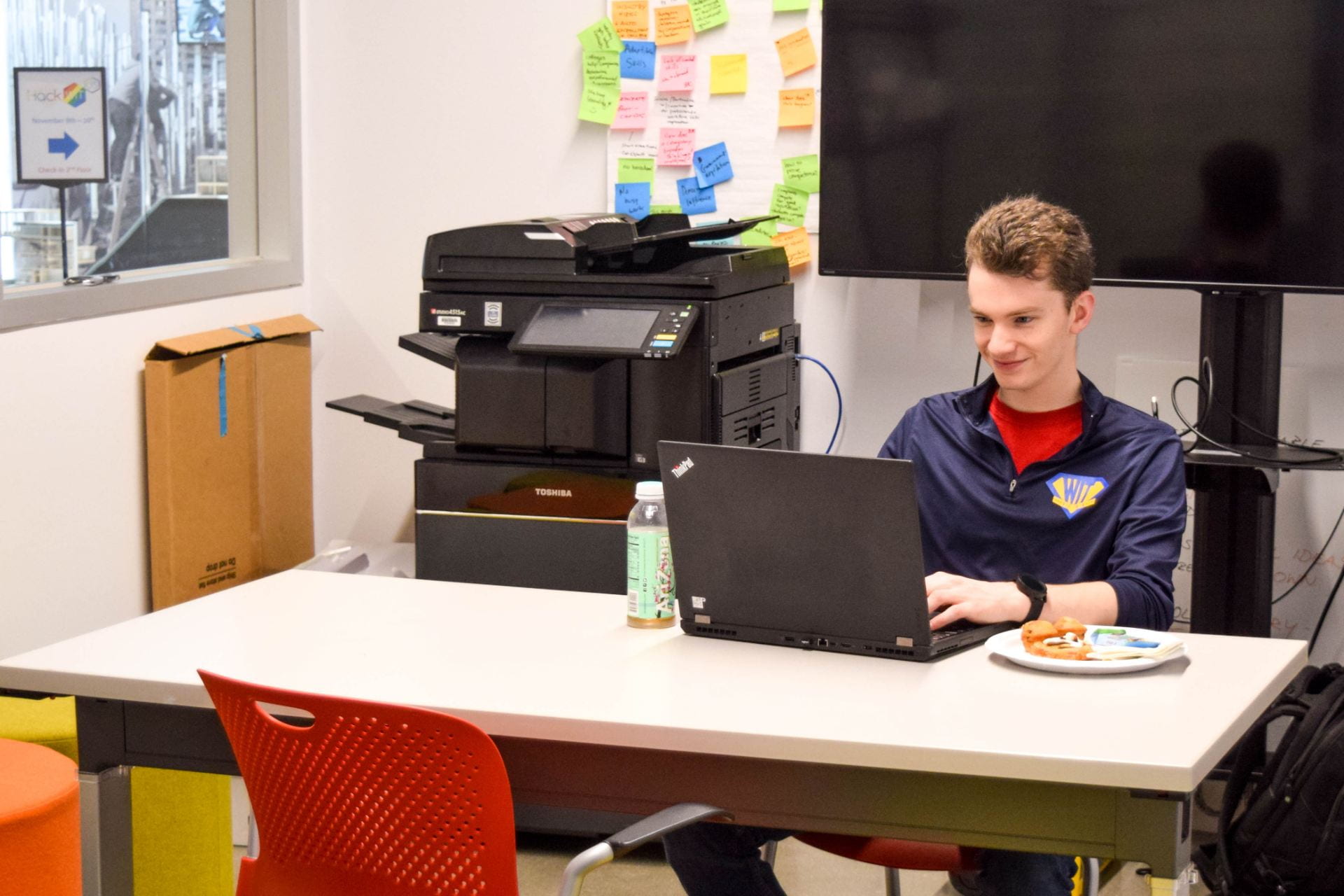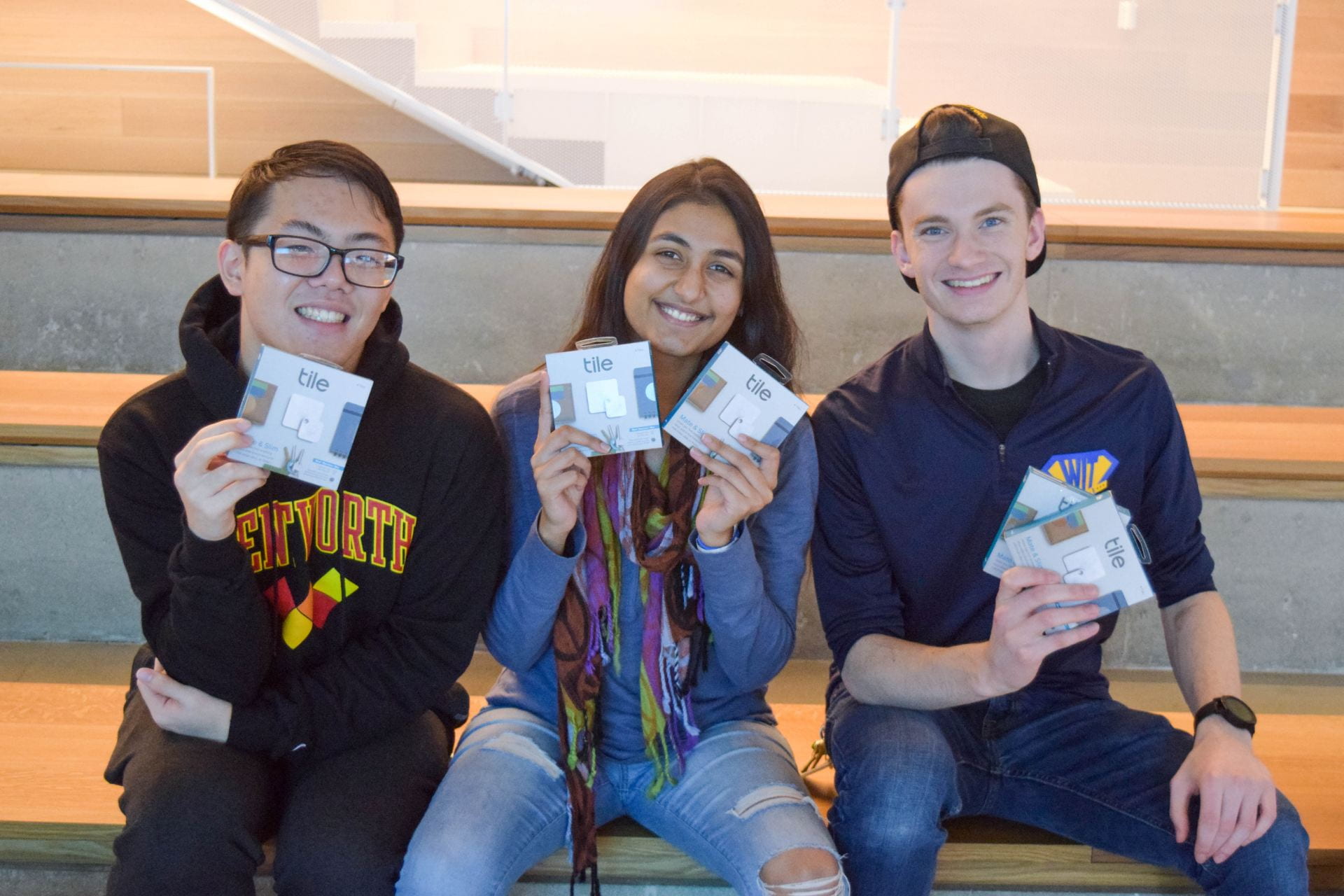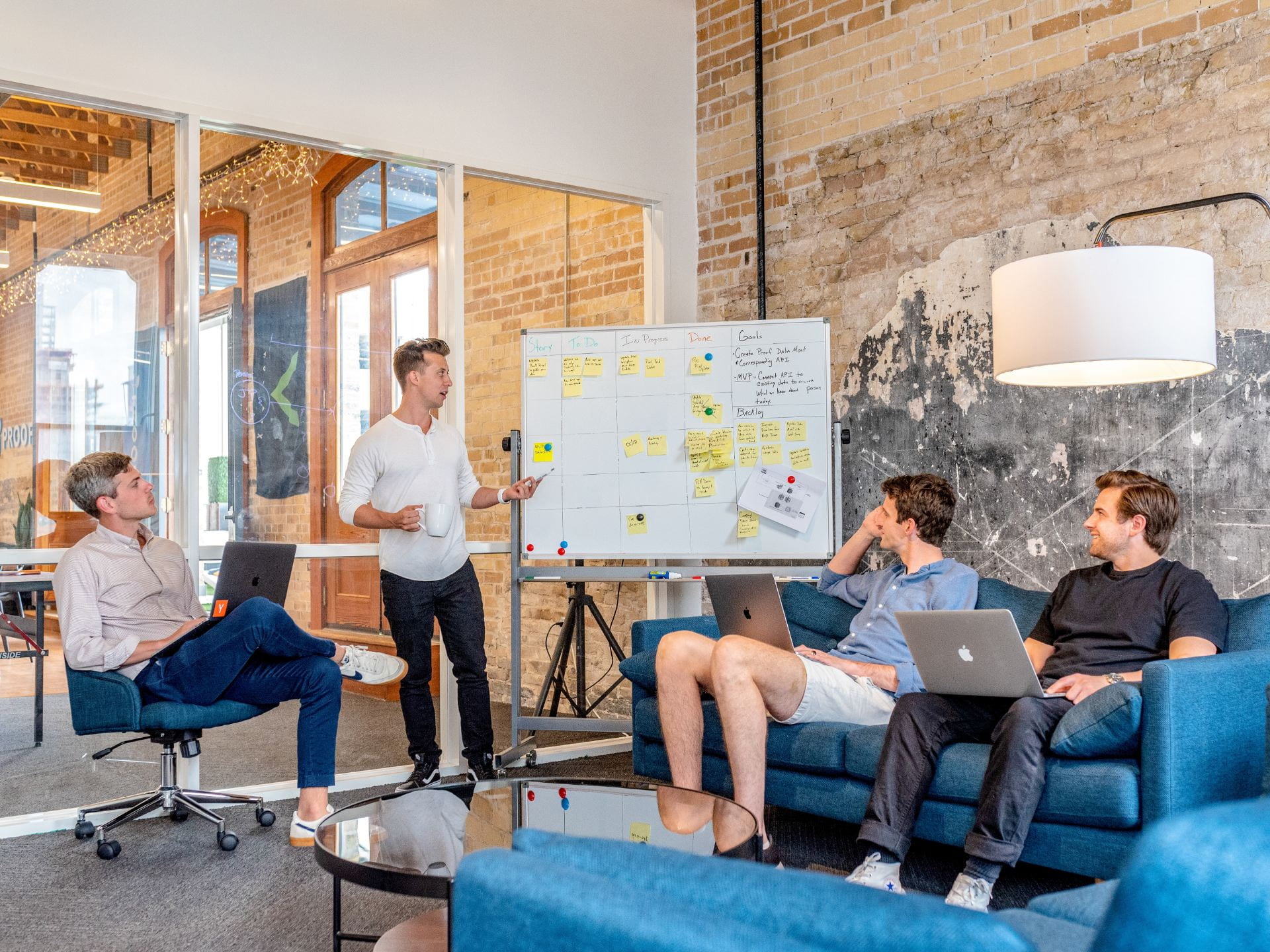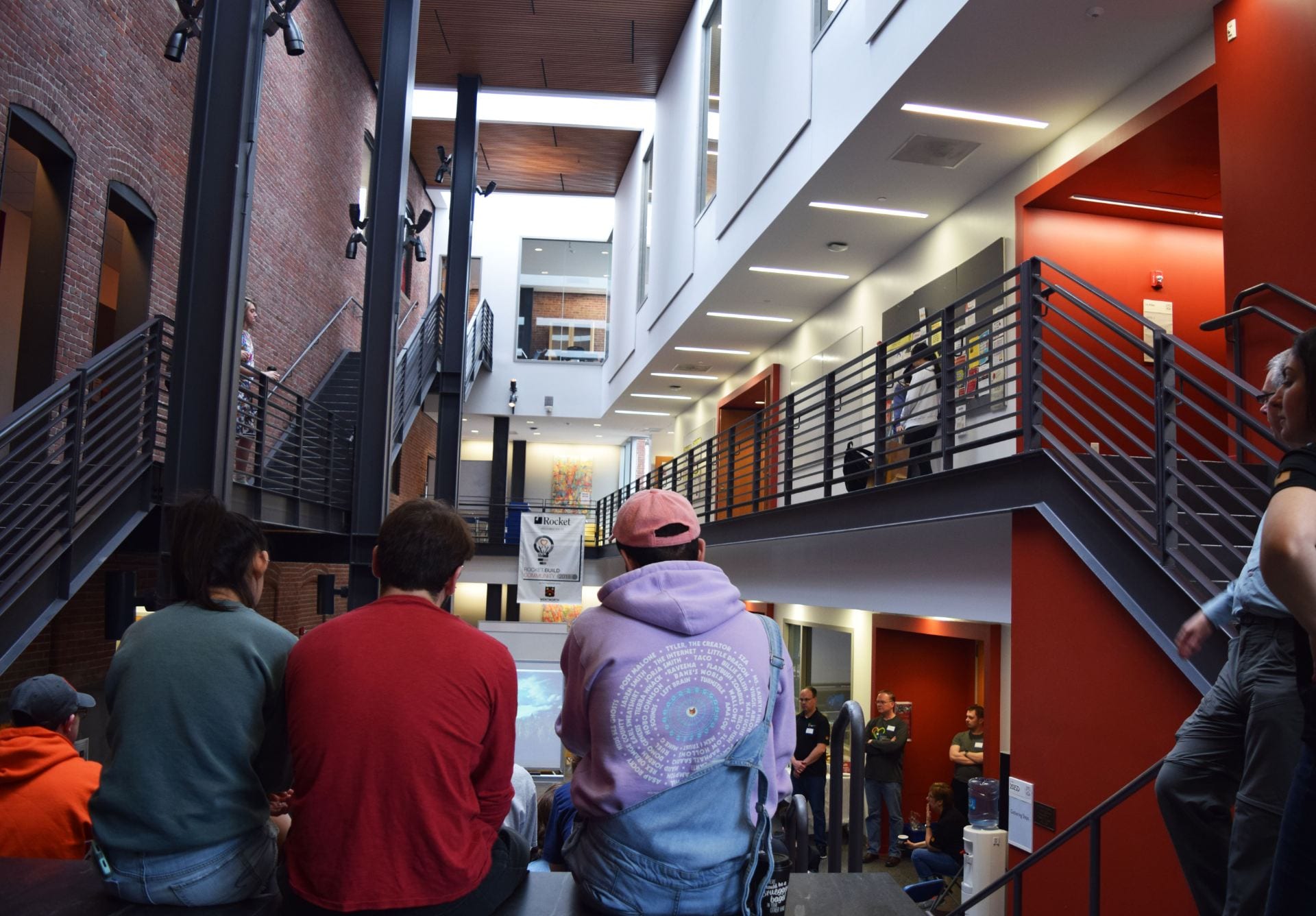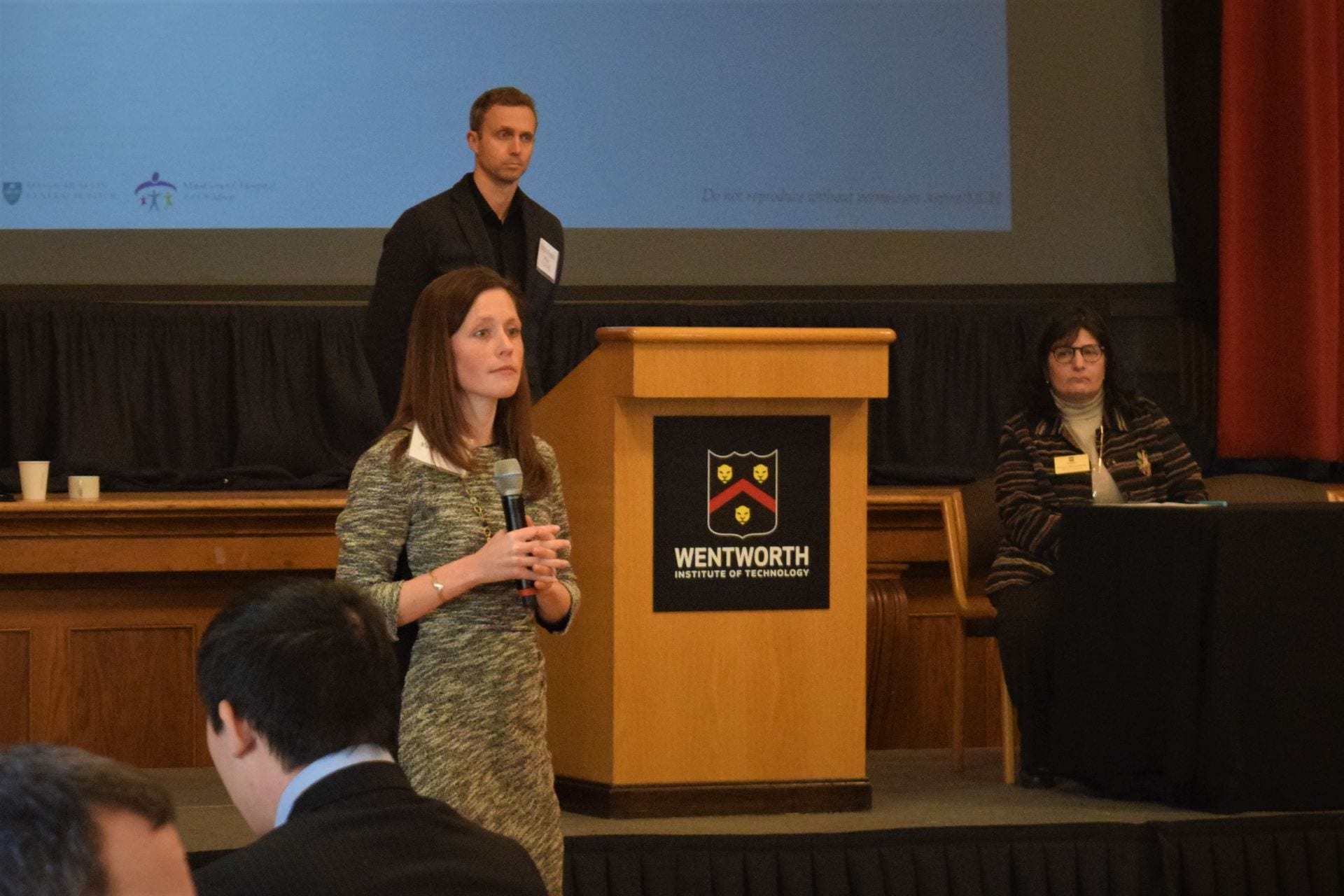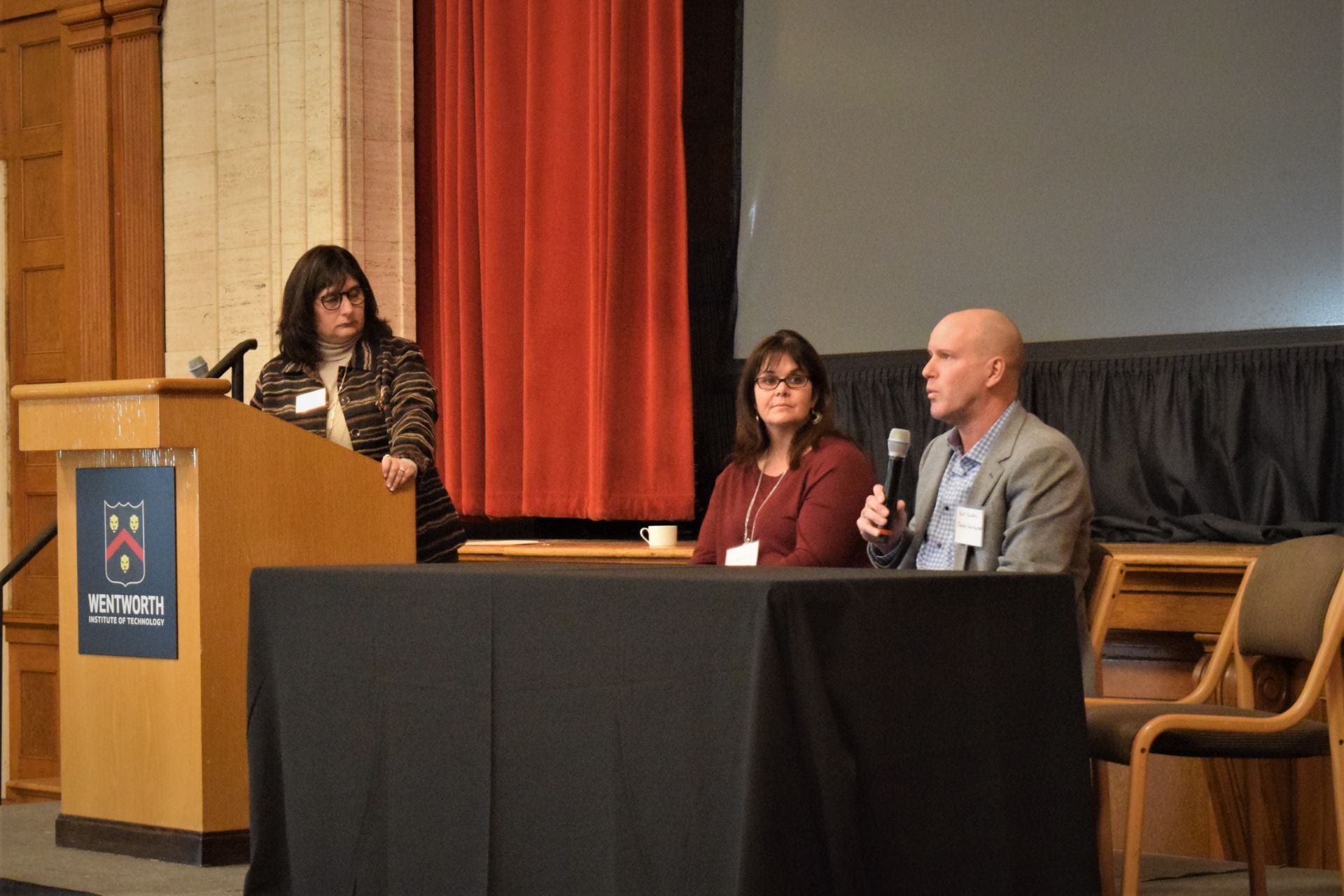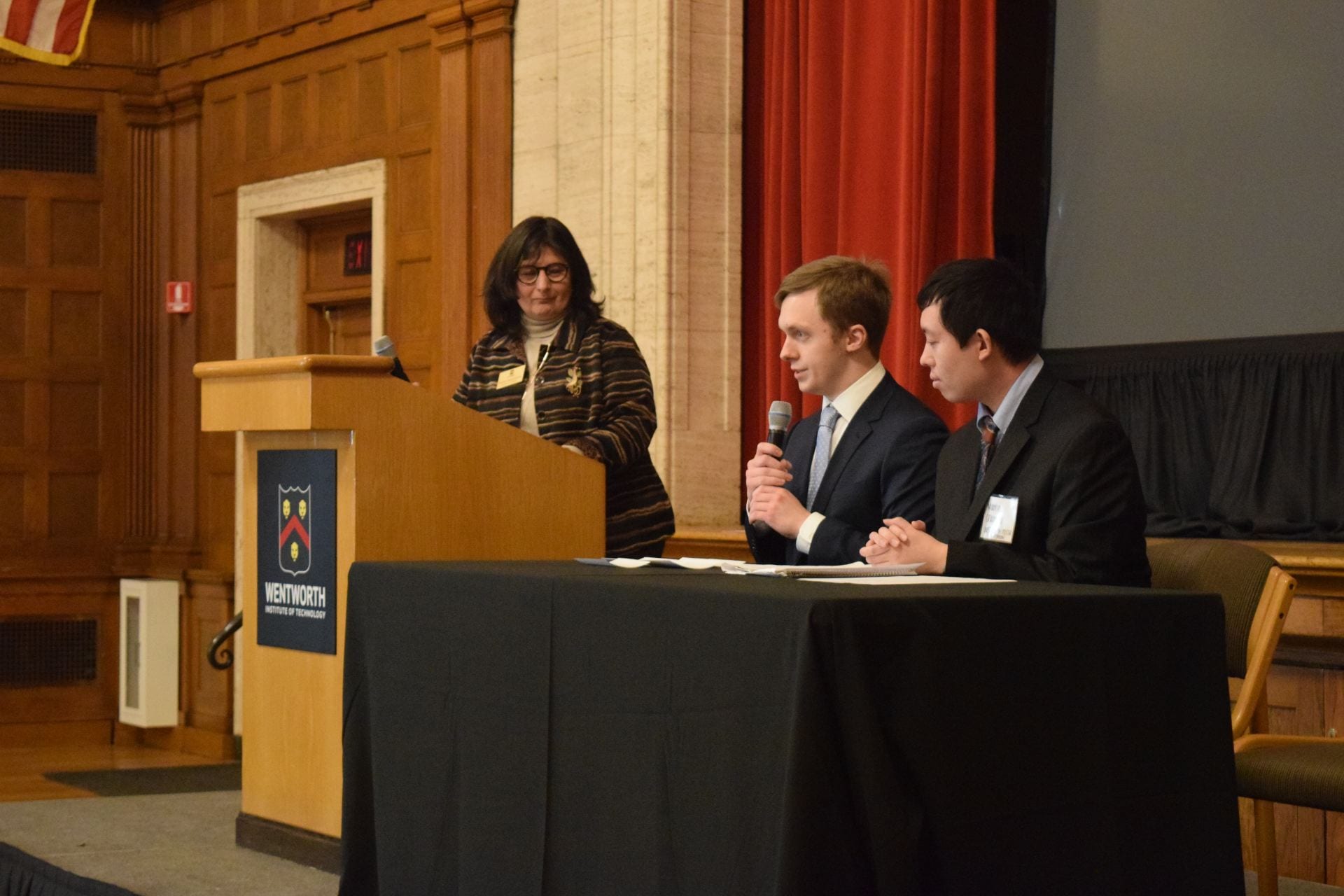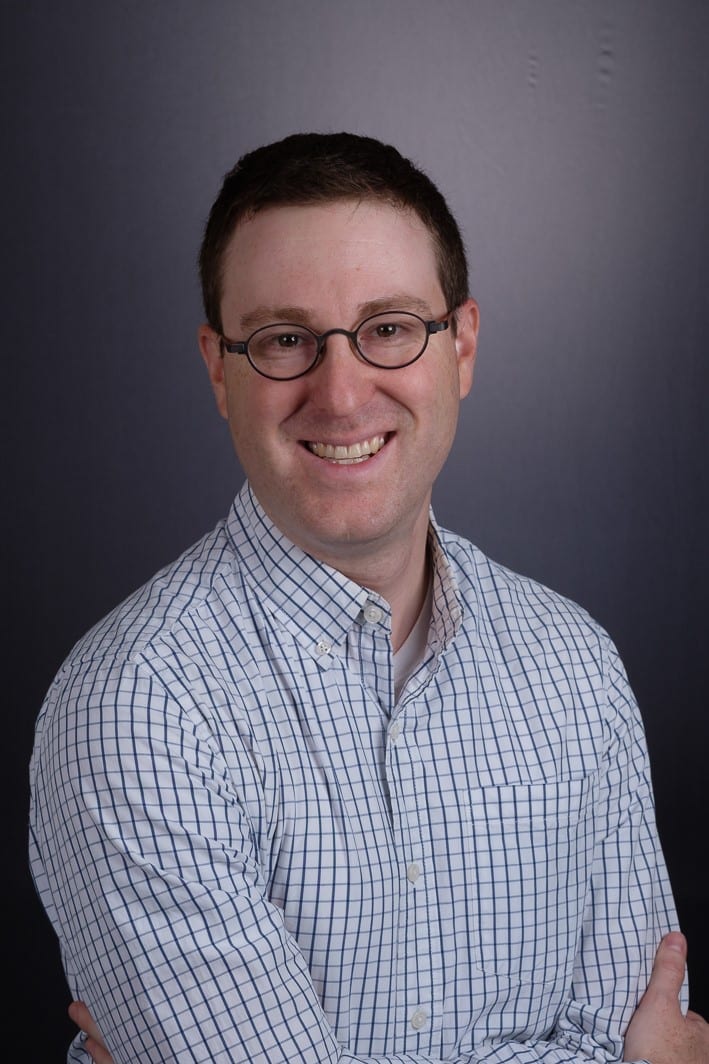By: Abbey Pober & Greg Affsa
Every year Dyson challenges current engineering and design students, and those within four years of graduating, to design something that solves a problem. Run by the James Dyson Foundation, this international design award was created to “celebrate, encourage, and inspire the next generation of design engineers.” Do you have a problem you can solve through design? Here’s everything you need to know about entering your solution for this year’s award and a chance to win up to $35,000!
What are the judges looking for?
Very simply, the judges are looking for you to meet the brief: ‘design something that solves a problem.’ Prize winning entries put the problem at the forefront of the design and make the solution clear.
A strong entry will:
- Meet the brief with a compelling solution that solves a social, global, or sustainability problem and has the potential to improve peoples lives.
- Be a thoughtful solution that can be easily explained
- Incorporate design process, demonstrating iterative development through images and video, and address both real and possible failures.
- Offer something different from existing products.
- Have a real-world application with obvious potential to advance its field and be produced and sold.
- Be clear, concise, and well-evidenced.
Keep track of how your invention meets the judging criteria with this design brief template. Download here.
Design Process
What you build for your solution is important but what is equally important is to show your process for how you developed your solution. Using Design Thinking as your design process demonstrates that you understand your user, have identified a critical need to solve for, and shows you have integrated user feedback into your final solution.
STEP 1, EMPATHIZE: Build empathy for the person you are solving for. Create a persona of this population. Create a journey map to give context to the issue or situation you are addressing. You must understand who you are solving for before you can create a solution.
STEP 2, DEFINE: Once you understand your end user and their experience, create a list of challenges your user is facing. Highlight the “root cause” challenges that you feel require a solution.
STEP 3, IDEATE: Brainstorm 50+ ideas that could solve the root cause challenges you have highlighted. Anything can be listed here as an option, from the practical to the ‘out of this world’ ideas. Prioritize these to determine which can have the greatest impact based on resources available.
STEP 4, PROTOTYPE: Build it! Create a prototype of your solution.
STEP 5, TEST: Get your prototype in front of your user, have them use it, and get feedback. Adapt your solution based on feedback.
Building the right solution that solves a real problem is the goal of Design Thinking. By leading with empathy, and understanding the end user at the start, you can be confident that what you build will bring value to the people you’re solving for.
How to Enter
Entries are being accepted now through July 16, 2020. Individuals and teams of up to ten should submit their idea online through the James Dyson Award website. Qualified participants must be current students or recent graduates (within the last four years) of an engineering-related degree program from a university in an eligible country.
When it’s time to submit your design, you will be asked the below questions. It is a good idea to save your answers in a word document first so you can easily copy into the webform.
- What it does: clearly explain what your invention does in no more than two sentences.
- Your inspiration: this is where you need to explain the problem your invention is addressing and why your invention is necessary/important
- How it works: clearly explain how your invention works in simple language, don’t use jargon or over-complicate it.
- Design process: describe and explain your iterative design journey, what problems have you faced, how did you overcome them, how has this process improved your invention? Make sure to provide images and videos.
- How it is different: there are lots of new designs/concepts/inventions out there, why is yours unique?
- Future plans: what are your next steps, are you filing a patent, are you working through the design process, are you ready to manufacture?
- Awards: have you won any other awards for your invention?
Video and imagery are important tools to communicate how your invention works and why it deserves to win, but the judges are not expecting extremely polished content – smart phone images and videos are great. Videos do not need to be complex or highly edited and can be as simple as you explaining how the invention works in one minute.
Prizes
Entering for the James Dyson Award not only gives you a chance to put your design skills to the test but puts you in the running for multiple prizes and opens the door to international exposure for your work. Prizes include:
- One overall international winner receives $35,000 and an additional $6,000 for their University
- NEW this year, one sustainability winner receives $35,000
- Two international runners up receive $6,000
- 27 national winners receive $2,500, 54 national runners up
- Top 20 Shortlist – A panel of Dyson engineers select an international Top 20 from all national finalists.
- International media exposure for all finalists
Need some inspiration? Check out the designs entered by last year’s winners and finalists: https://www.jamesdysonaward.org/en-us/past-winners/
Sign up to receive the James Dyson Award newsletter and register for the award at: https://www.jamesdysonaward.org/. Questions about careers at Dyson? Check out https://careers.dyson.com/ or email graduates@dyson.com.
